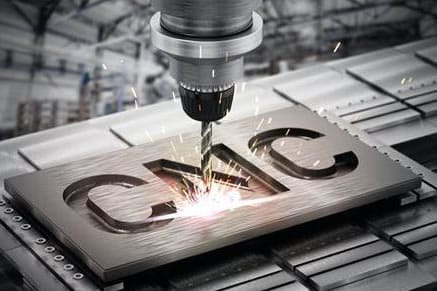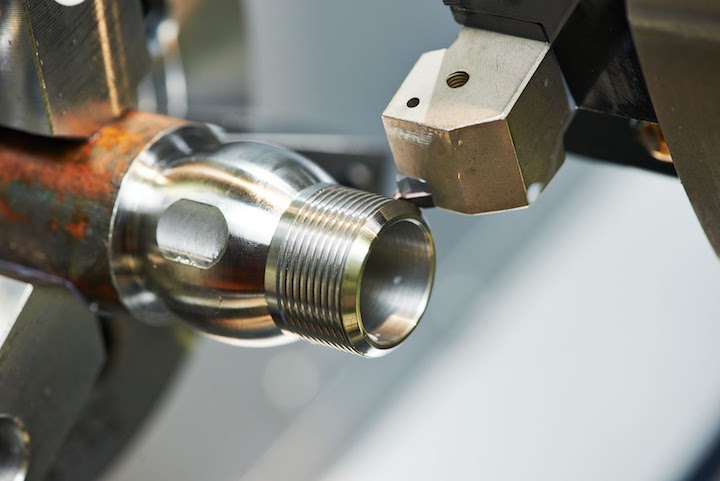CNC Machining: Revolutionizing Manufacturing with Precision and Effectivity
CNC Machining: Revolutionizing Manufacturing with Precision and Effectivity
Blog Article
CNC machining, or Computer Numerical Control machining, has become the foundation of modern manufacturing. It offers a level of precision, quality, and reliability which was not possible before conventional methods. Through the automation of control for machine tools through computers, CNC machine tools allow manufacturers to produce complex parts with astonishing precision. From aerospace and automotive sectors to the electronics industry and health care, CNC machining is utilized across a variety of fields to produce complex components that need high precision. The integration of computers into the process of machining has changed how products are created and manufactured, setting the bar for excellence and productivity.
One of the main advantages of CNC Machining is the capacity to produce complex and intricate components with extreme precision. In contrast to manual machining, in which precision is largely dependent on the skill of the operator CNC machines adhere to programmed instructions precisely. These instructions in digital format, usually made with CAD (Computer-Aided Design) software, allow manufacturers to produce parts with accuracy as close as small amount of microns. This precision level is critical in industries like aerospace and medical device manufacturing, where even the smallest deviation can compromise the performance or safety of the product. By using CNC machining, manufacturers are able to guarantee that every component is in compliance with the exact specifications, thus reducing the chance of defects, and the necessity for expensive overhauls.
In addition to its precision, CNC machining is also well-known for its effectiveness and cost-effectiveness. Conventional machining processes typically require skilled operators to manually adjust and control the machinery and can take a long time and expensive. CNC-machined machining removes a lot of the manual labour involved in the production process since machines operate in complete autonomy for extended time after having been established. This allows manufacturers to increase productivity without needing the need to increase their labor or resources. Also, CNC machines are capable of performing several operations using a single configuration which means that there is less need to move parts or reposition the part, which saves time and lowers the likelihood of error. Automating results in shorter production cycles and lower costs per component, making CNC machines a desirable solution for firms trying to optimize their processes for manufacturing.
One of the main features of CNC machining was using computer-aided designs and computer-aided manufacturing software. CAD software lets engineers make precise 3D designs of the components that will be manufactured, and CAM software converts these models into machine instruction. This seamless connection between production and design makes sure that products produced meet the design requirements originally set out. Moreover, CAD/CAM software enables rapid prototyping, allowing manufacturers to rapidly test and improve their designs before committing to massive production. It is possible to modify designs and produce prototypes gives firms a competitive advantage in industries where innovation and speed to market are vital. To generate extra information kindly check out https://www.premiumparts.com/services/cnc-machining
One of the problems with CNC machine machining is the cost of initial setup. Making investments in CNC equipment and software required to operate it can be expensive, especially for smaller enterprises. However, the long-term benefits of CNC cutting-edge technology, like lower labour costs, improved efficiency, as well as improved products' quality usually outweigh the initial cost. Many companies also provide CNC machine-making services to companies who may not have the money to purchase their own equipment, allowing smaller manufacturers to profit from this technology without the upfront costs. Since the need for CNC manufacturing continues to grow as well, the expense of equipment and software is expected to decrease, making it more accessible to a wider range of businesses.
Future of CNC machining is bright, the advancements in technology are constantly increasing the capabilities of what machines can achieve. While CNC machines grow more sophisticated, they're becoming increasingly integrated with other technology like 3D printing, robotics and even 3D printing creating hybrid manufacturing methods which combine the advantages that come from a range of methods. Also, the advancement of smart manufacturing as well as technology like the Industrial Internet of Things (IIoT) has led to greater integration and automation of CNC machining. It allows machines to talk with one other and adjust operations in real time based on information from sensors. As new technologies continue to progress, CNC machining will remain an essential tool in the advancement of manufacturing technology and will provide even more precision, speed, and versatility in the future of manufacturing.